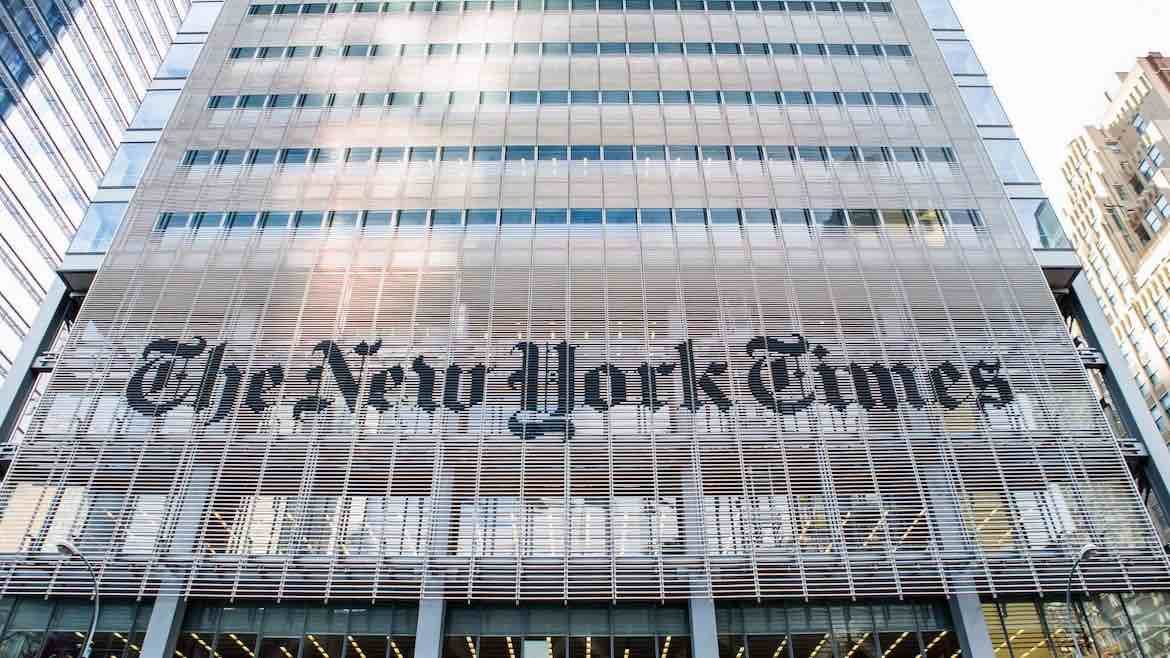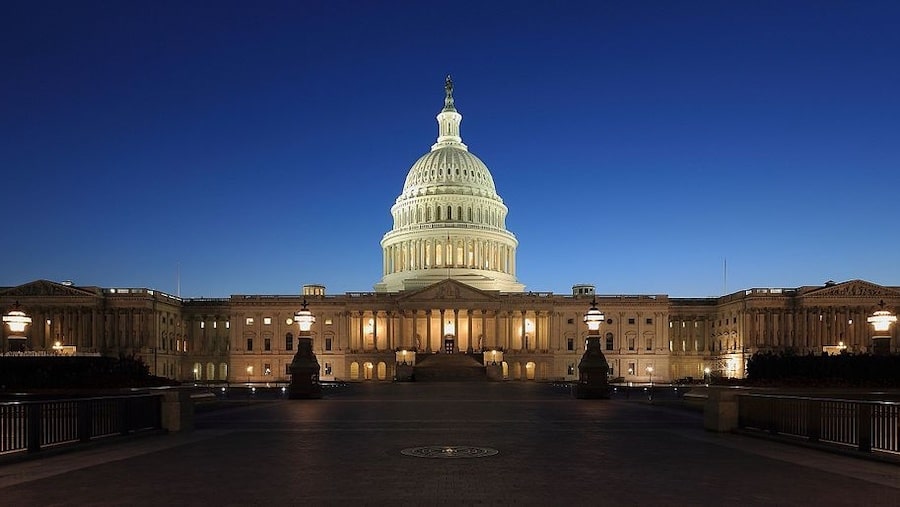New York Times’ ‘The Daily’ podcast headed to public radio

Anthony Quintano / Flickr
The New York Times will bring its popular podcast The Daily to public radio this spring through a distribution deal announced Tuesday with American Public Media.
The Times will produce a daily 30-minute radio version of the podcast for distribution to stations starting in April. Though the podcast is released at 6 a.m. Eastern time, public radio stations will be able to air the radio version between 4 p.m. and midnight Eastern time.
“So much of what’s at the core of The Daily is shared with public radio: great reporting, genuine curiosity and a desire to help listeners better understand the world around them,” said Samantha Henig, editorial director for audio at the New York Times. “For that reason, radio feels like a natural home for the show.”
Henig said she believes public radio offers an untapped audience for The Daily that “may never open up a podcast app on their phones.”

Barbaro
“It just makes sense that Michael Barbaro and The Daily would come to public radio,” said Shona Koester, VP of distribution and content partnerships at APM. “… [W]e really feel that a lot of the public radio audience isn’t hearing it, and that it’s going to be very additive to the news that they’re already hearing and to the news that they trust.”
Hosted by Michael Barbaro, The Daily debuted in February 2017. Each episode is essentially a highly produced two-way with a Times reporter, incorporating interviews and other audio about one or two subjects in the day’s news.
The New York Times began hearing from stations and distributors “soon after launch” who said the show would be a good fit on radio, Henig said. The Times initially tabled those discussions as the podcast’s team learned to produce a daily show. But once it was ready to pursue radio, “American Public Media was one of our first calls,” she said. The network is “a well-respected and well-positioned distributor,” Henig said, “and we liked that they have a strong track record of distributing owned and third-party shows to public radio.”
Kinsey Wilson, advisor to the CEO at the New York Times and a former NPR executive, contacted APM about four months ago about bringing The Daily to public radio. Wilson was a “strong advocate” for the idea, Henig said.
The podcast and broadcast will share “overall DNA,” Henig said, but the Daily team is “experimenting with what that means for the radio version of The Daily.”
While the podcast generally runs from 20 to 40 minutes, the radio broadcast will need to fit a traditional public radio clock and include spots for regional and national underwriting.
The broadcast might also need updating depending on the news cycle, but “we’ve found that the way The Daily approaches the biggest story of the day — by starting at the beginning and filling in all the context required to understand the latest news — is just as relevant in the evening,” Henig said.
The Times will cut from the radio version a segment titled “Here’s What Else You Need to Know Today” to prevent it from getting dated by the afternoon. And Henig suggested that the radio show may further evolve as The Daily’s team experiments with the format.
“We know that the experience of listening to the radio in the car or while doing dishes can feel very different than when you’re fully plugged in with your headphones on,” she said. “We’re still experimenting with what that means for the radio version of The Daily.”








How, exactly, does handing over your audience to a direct competitor for 30 minutes every day actually benefit public radio stations?
And with seriously stale content, too. I can’t imagine any self-respecting pubradio news director saying it’s acceptable to broadcast daily news content that’s ten hours old. That’s a newspaper mentality right that and it’s inexcusable for radio.
Oh wait, Kinsey Wilson was pushing this? Well that explains things: it doesn’t benefit public radio stations at all. Historically Wilson’s sole goal in life is trying to kill off member stations by pushing the national at their expense.
Jeez, between this and TOTN and Car Talk (among many other examples) this really highlights how badly NPR has fumbled its role in content creation. It’s both inexplicable and inexcusable why either NPR or the member stations continue to allow it.
Brad, you don’t make any sense. Like, at all. I’m not sure you understand the relationships between non-profit stations (member stations) and content distributors like NPR and APM. You sound like you are angry about something else tbh.
I understand them quite well, actually, and would be happy to explain further but I don’t know what it is you’re not understanding in my comment. Can you elaborate?
Speaking broadly, stations purchase programming from content providers, including NPR and APM. NPR has largely abandoned the realm of actually providing content; excepting Morning Edition, Weekend Edition, All Things Considered/WATC and (oddly enough) Ask Me Another…almost everything NPR *distributes* is not actually *produced* by NPR. It’s mostly produced by member stations on behalf of NPR: On Point, Here & Now, 1A, Fresh Air, Latino USA, Only a Game, On The Media (if they’re still with NPR…I’m not sure they are), etc etc. The rest are produced by psuedo-competing networks…PRX and APM chief among them…or independent entities.
One can make an argument for or against the idea that some of the entities are competing with each other. Kinda depends on how you look at it. But unquestionably they’re all (or almost all) produced by PUBLIC RADIO entities. Entities that, even if they compete, are still – in theory – working towards the betterment of the public radio system as a whole. (although not entirely; I’ll come back to this in a minute)
The Daily, however, is completely different. This is content produced by an entity – the New York Times – that is in direct competition with all of public radio. The success of the Daily is partially detrimental to public radio stations because it’s “stealing” listeners, and perhaps more concretely, it’s “stealing” corporate support dollars that go to the NYT instead of public radio entities.
I mentioned before about how even when they compete, most of these entities are working to better the public radio ecosystem as a whole. That’s mostly true but there’s factions within NPR central that have, for many years, been working very hard to make NPR central functionally independent of member stations. At the direct expense of member stations, in many cases. NPR One is a prime example; it sucks listeners into a platform that downplays member station content and does not give HIGHLY valuable visitor data to member stations, either.
That’s why I singled out Kinsey Wilson. NPR One, among other things (including this The Daily partnership), was his brainchild, too…and he’s got a long, long history of being exceedingly antagonistic towards member stations. It’s a major reason why he was forced out when Jarl Mohn was hired. Mohn is very far from perfect, but unlike several of his predecessors, he’s been a lot less openly hostile towards member stations’ success.
FWIW, I will admit that I *am* indeed pissed at NPR for the separate-but-related issue of Car Talk. It’s utterly unacceptable that NPR had five freaking years to cultivate a successor, host/personality-based show to replace Car Talk after Tom & Ray retired. And then they had almost three years after Tom died. But their philosophy has been to retreat from the program creation space wherever possible and put all the risk and onus on member stations to find replacements. This philosophy is where terrible ideas like The Daily are coming from. Instead of aggressively owning and controlling the public radio content space, ensuring top-notch content for the entire network, NPR has been meekly retreating and allowing lousy ideas like this to rise to prominence.
Yes, I’m aware The Daily is APM’s creation…but if NPR had some stones, it wouldn’t have happened in the first place because NPR would’ve already created something better (Up First is crap; it’s bad content and it’s terrible that they’re forcing it on member stations by replacing the A segment of Morning Edition in the 5am ET/8am PT hour). And APM is no friend to the public radio space, either. They’re owned and controlled by Minnesota Public Radio and everything they do is about benefiting MPR first and if it happens to work for the rest of country? Eh, whatever.
Brad,
As a now receiver of this for profit content on my public radio station in Oregon, I just want to let you know that your comment rings true with me. I can’t believe my member dollars are paying for this 3rd party content.
What’s with the high speed baby talk on these podcasts ?
Good info , but Edward R. Murrow must be spinning in his grave.
Public radio is a non profit corporation. The NY Times is a for profit corporation. So the contributors money to public radio is then transferred to a for profit NY Times in exchange for the Daily? Something seems wrong about this at its core.